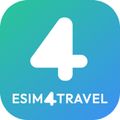Keepgo a toujours répondu aux besoins des utilisateurs fréquents de données mondiales. Ainsi, la période de validité minimale pour toute donnée achetée auprès de Keepgo est de 365 jours. En effet, les données de nos forfaits eSIM sont valables à vie, tant qu'elles sont rechargées une fois tous les 365 jours. La couverture actuelle est de plus de 100 pays, travaillant à se développer davantage.

Keepgo a toujours répondu aux besoins des utilisateurs fréquents de données mondiales. Ainsi, la période de validité minimale pour toute donnée achetée auprès de Keepgo est de 365 jours. En effet, les données de nos forfaits eSIM sont valables à vie, tant qu'elles sont rechargées une fois tous les 365 jours. La couverture actuelle est de plus de 100 pays, travaillant à se développer davantage.
Données Gratuite
Forfaits de données eSIM Keepgo pour le Singapour
Questions fréquemment posées
Keepgo propose-t-il une eSIM à données illimitées pour Singapour ?
Keepgo ne propose pas de plan eSIM à données illimitées pour Singapour. Les offres de Keepgo axées sur Singapour sont des forfaits à données fixes qui offrent une quantité définie de données haut débit valable indéfiniment.
Les plans de 50 GB de Keepgo sont les options les plus grandes disponibles. Par exemple, le plan Norm coûte 140, 00 USD, le plan Tucana 155, 00 USD, le plan Chamaeleon Asia‑Pacific 210, 00 USD, le plan Cassiopeia Asia‑Pacific 230, 00 USD, et le plan Andromeda 275, 00 USD. Ces forfaits à données fixes peuvent être plus économiques pour les voyageurs qui ont besoin d'une allocation de données importante mais qui n'ont pas besoin d'un volume de données illimité.
Keepgo propose‐t‑il une eSIM singapourienne avec numéro de téléphone et SMS ?
Keepgo ne propose aucun plan eSIM de Singapour incluant un numéro de téléphone ou la capacité SMS. Tous ses plans de Singapour sont uniquement data et ne prennent pas en charge les appels voix entrants ou sortants ni les SMS entrants ou sortants. Les voyageurs qui doivent rester en contact peuvent utiliser des applications VoIP courantes telles que WhatsApp, Telegram ou iMessage via la connexion de données Keepgo pour les appels et les messages.
Combien de forfaits de données Keepgo propose-t-il pour Singapour ?
Keepgo propose un total de 39 forfaits de données multi‑pays pour Singapour, sans forfaits listés pour un seul pays. Les forfaits couvrent une fourchette de prix de $0, 00 à $400, 00 et des plafonds de données allant de 100 MB à 50 GB. Dans cette fourchette, certains forfaits offrent un montant de données fixe qui reste constant pendant la période de validité, tandis que d’autres utilisent un plafond quotidien qui se réinitialise chaque jour. La période de validité peut varier d’une durée sans expiration à aussi courte que 7 jours.
Résumé avec Gen AI. Dernière mise à jour:




